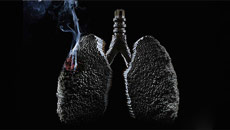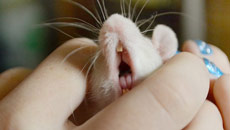In an alarming find, scientists have discovered that the collapse of West Antarctic ice sheet - that holds enough water to raise global seas by several feet - has already begun.
The fast-moving Thwaites Glacier will likely disappear in a matter of centuries, researchers say, raising sea level by nearly two feet.
That glacier also acts as a lynchpin on the rest of the ice sheet, which contains enough ice to cause another 10 to 13 feet (3 to 4 metres) of global sea level rise.
“There has been a lot of speculation about the stability of marine ice sheets, and many scientists suspected that this kind of behaviour is under way,” said Ian Joughin, a glaciologist at the University of Washington's applied physics laboratory.
This study provides a more quantitative idea of the rates at which the collapse could take place.
The researchers used detailed topography maps and computer modelling to show that the collapse appears to have already begun.
The good news is that while the word "collapse" implies a sudden change, the fastest scenario is 200 years, and the longest is more than 1,000 years.
The bad news is that such a collapse may be inevitable.
“In our model simulations, it looks like all the feedbacks tend to point toward it actually accelerating over time; there is no real stabilising mechanism we can see,” Joughin noted.
The new study used airborne radar, developed at the University of Kansas with funding from the National Science Foundation, to image through the thick ice and map the topography of the underlying bedrock.
The researchers combined that data with their own satellite measurements of ice surface speeds.
Their computer model was able to reproduce the glacier's ice loss during the past 18 years.
Results show that as the ice edge retreats into the deeper part of the bay, the ice face will become steeper and, like a towering pile of sand, the fluid glacier will become less stable and collapse out towards the sea.
“Once it really gets past this shallow part, it's going to start to lose ice very rapidly,” Joughin added.
More emissions would lead to more melting and faster collapse, but other factors make it hard to predict how much time we could buy under different scenarios, the researchers noted in the study published in the journal Science.





